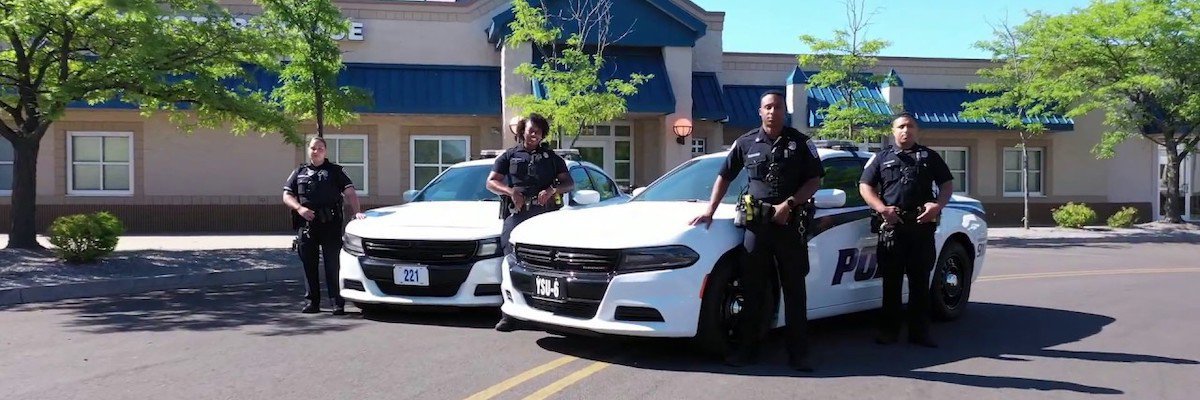Out of 50 state police departments whose domestic violence response policies were requested, only the New Jersey State Police released their policy pertaining to domestic violence incidents involving police officers.

However, after nearly a year of waiting, the NJSP have still yet to release docs detailing how many officers have been accused, what they’ve been accused of, and whether or not they are still employed.
The policies regarding officers, referred to in the policy as “involved members,” doesn’t just dictate how an abuser is supposed to act - it requires any victims of domestic abuse to report the incident to their superiors as well:

As an aside, requiring witnesses to report is understandable, but instituting a policy that could conceivably result in victims being punished for not having reported abuse is baffling. It belies a fundamental misunderstanding of the dynamics of a violent relationship, wherein more often than not the violence is not the end game; it’s a tool used to achieve control over another person.
Police can also face disciplinary action by failing to reports acts of domestic violence they witness while on leave or out of state:

If an officer responds to the scene of a violent domestic dispute involving another officer, they’re required to call someone who’s at least a sergeant to the scene. If the accused officer is a sergeant, someone at least one rank higher than him or her is to be notified.
The policy also dictates how to handle weapons at the scene:

While it’s great that the NJSP have such a thorough policy on how to handle domestic violence among officers, the policy itself is useless without documentation of how investigations are handled. Without knowing how the policy is actually applied, it’s impossible to determine they’re just going through the motions of writing a policy without implementing it effectively.
The NJSP have yearly reports on domestic violence stats from 2006 to 2015. These reports break domestic violence incidents down by what county and municipality they occurred in, what specific crimes the accused abuser was charged with - assault, kidnapping, sexual assault, harassment, homicide, stalking - the population of the municipality compared to the number of incidents the gender of the victim, the relationship of the victim to the abuser, and the time of day the abuse occurred. Despite all this detail, the report fails to give even a number for how many officers have been accused of crimes related to domestic violence.
When officers are called to a domestic violence incident, the Office of Professional Standards Commanding Officer is supposed to take a series of investigatory steps, in addition to producing a monthly log of domestic violence statistics (presumably stats related to police involved domestic violence incidents). A request for the monthly logs has gone unacknowledged.
One of the obvious issues that comes up is how to handle weapons in officer involved domestic violence:

How often, and under what circumstances, are officers disarmed? How many of them are charged with or prosecuted for a crime? How does the number of officers accused of domestic violence compare to the number prosecuted, and how do both numbers compare with the number of officers disarmed? How many of these officers are still working?
With regard to police officers who have been victims of domestic violence, even if the logs are released eventually, it’s unlikely that victims will be included, as information on victims is generally (and rightfully so) kept private. However, this is one of a handful of incidents in which erring on the side of safety does more harm than good by keeping data secret. Were any officers penalized for not reporting their own abuse? Were any assaulted by one of their fellow officers? How did those investigations shake out? We may never find out.
Read the full policies embedded below or on the request page:
Grim as all this is, we can use public records laws to hold the police accountable, and that’s what we’re hoping to do with this new project. Want to help? You can contribute via the form below.
Image via New Jersey State Police Facebook




